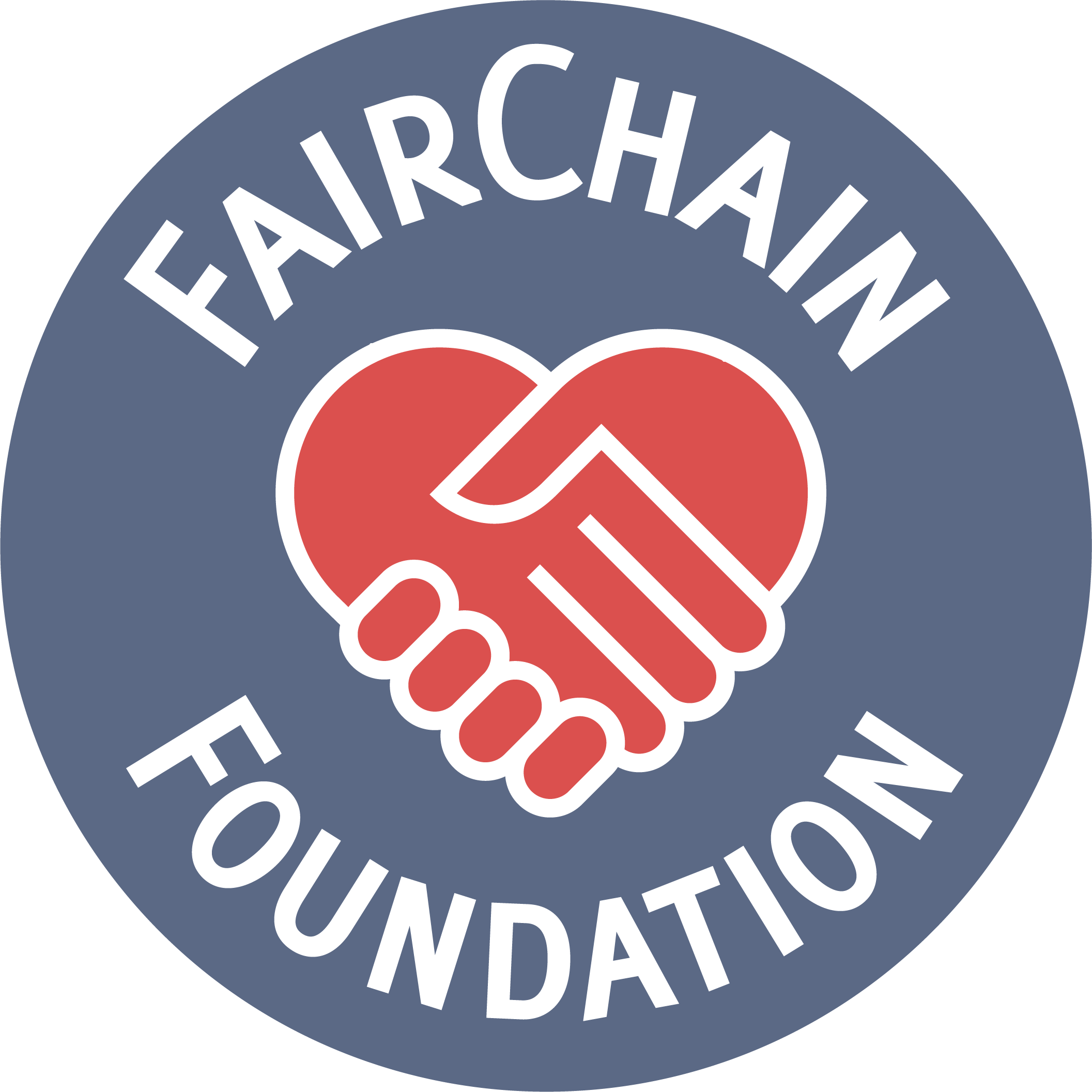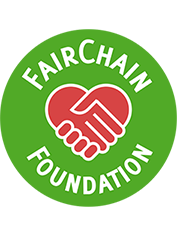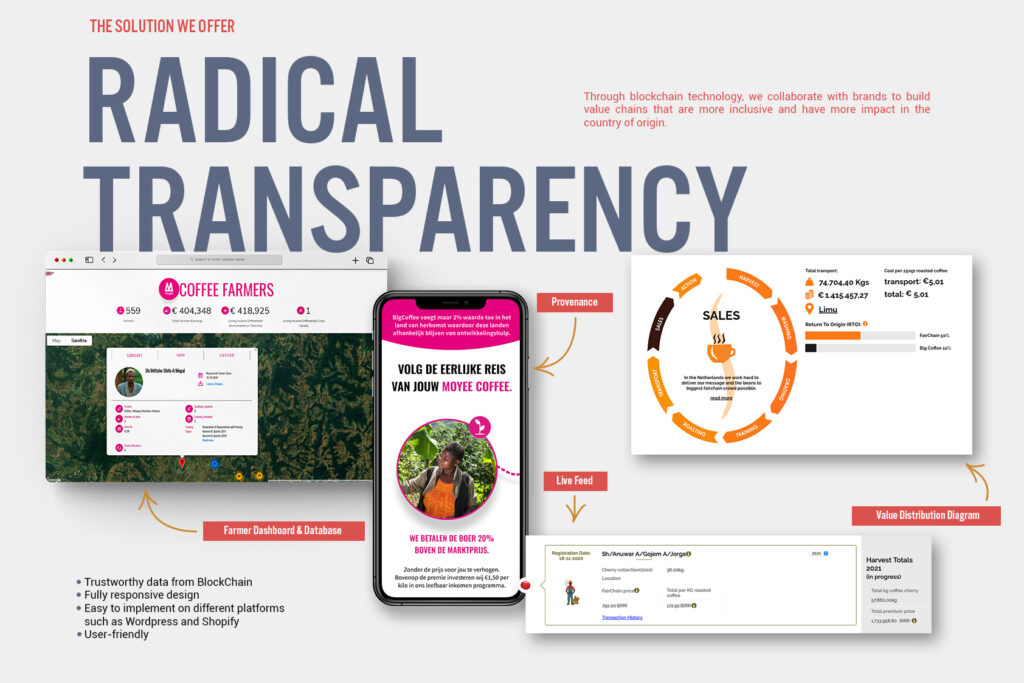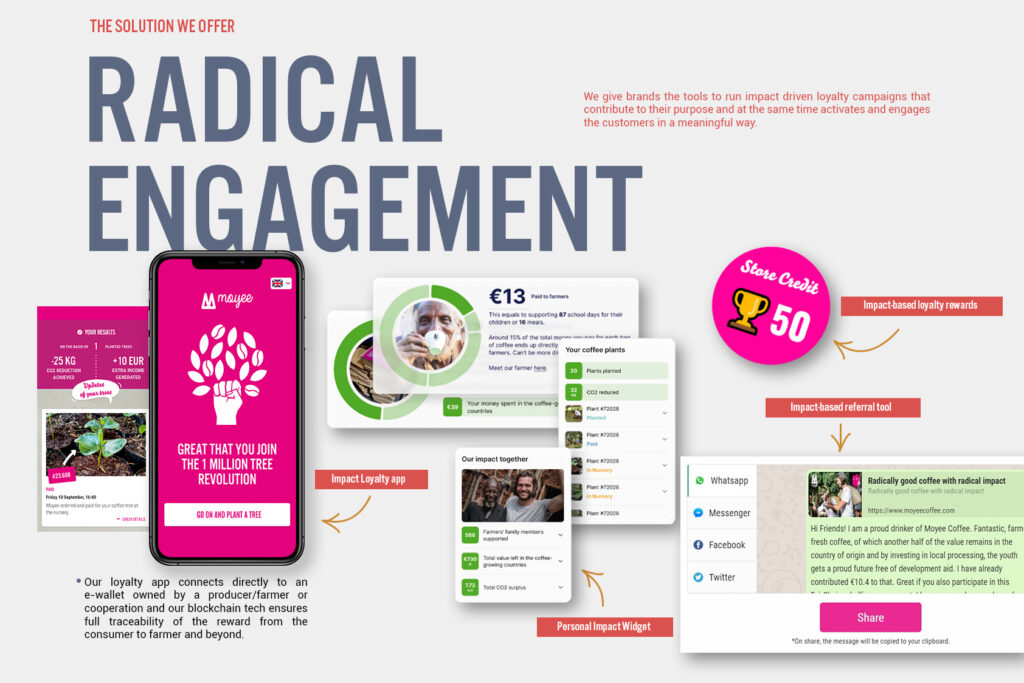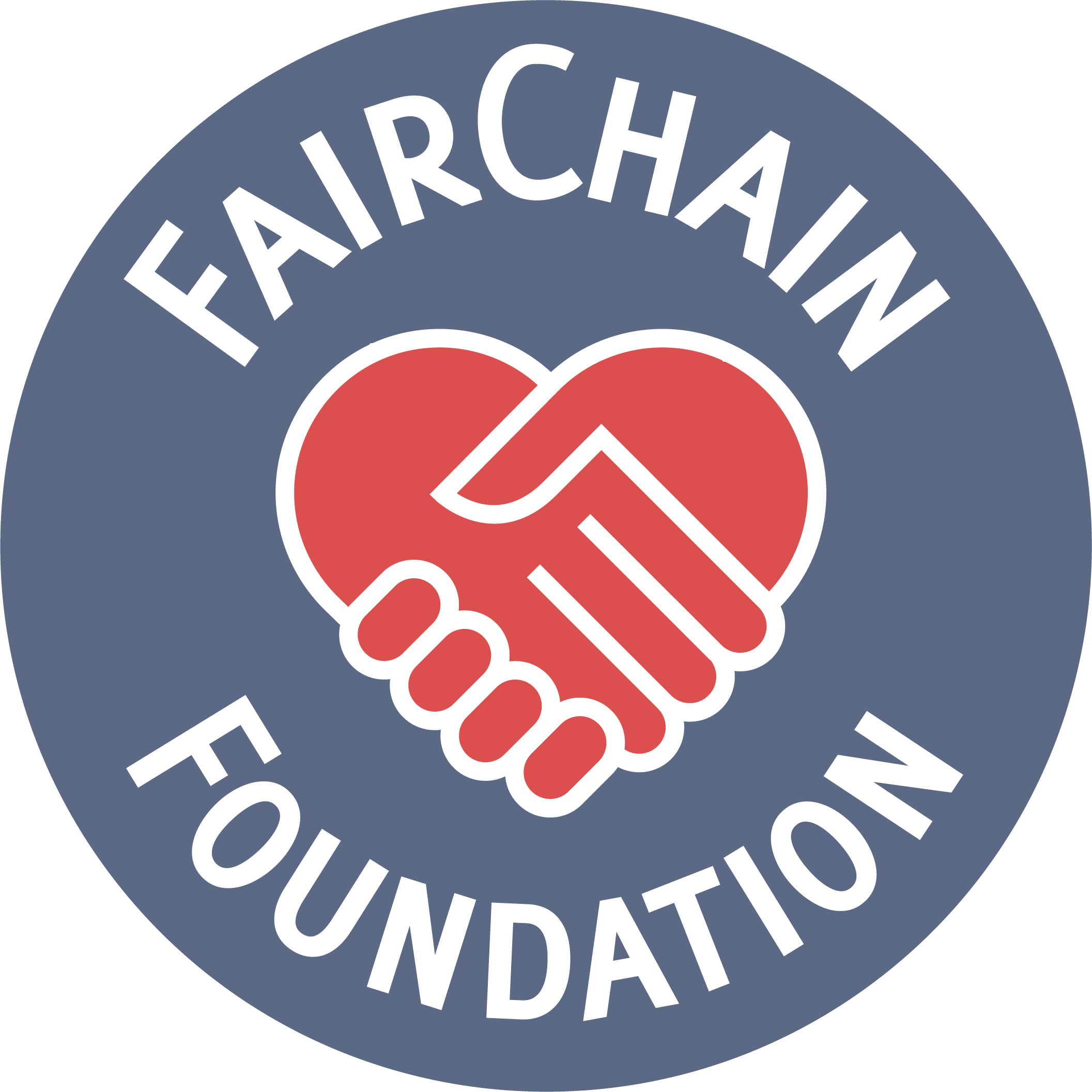THE CHALLENGE: AN UNEQUAL WORLD
Over the centuries, multinationals have discovered the art of selling premium products at colossal profits. The majority of their products are made from valuable commodities sourced at rock-bottom prices in developing countries.
This system of buying low and selling high has created an enormous power imbalance, making it virtually impossible for developing economies to grow. Even countries blessed with valuable commodities like coffee, cocoa and tea have no prospect of ever catching up.
THE HARD TRUTH IS THAT THE INEQUALITY BETWEEN COUNTRIES IS STILL THE SAME AS IN 1900.
In reality, global wealth inequalities are even more pronounced than income inequalities. The poorest half of the global population barely owns any wealth at all, possessing just 2% of the total. On the other hand, the richest 10% of the global population own 76% of all wealth (World Inequality Report, 2022). Even though Africa and South America have more than 45% of the most important resources such as gold, coffee and minerals, these are also the countries where the biggest inequality rates persist. Global inequalities seem to be about as great today as they were at the peak of Western imperialism in the early 20th century. Indeed, there is still a long way to go to undo the global economic inequalities inherited from the very unequal organization of world production between the mid-19th and mid-20th centuries. It is time to reinvent the social state in the 21st century.
THE SOLUTION: INCLUSIVE BUSINESS MODELS
We think that with the rise of new (transparent) technologies, open-minded companies and vocal global consumers, the time has come to systematically tackle traditional global trade challenges. The stars are aligned, so to say, to bring an end to unfair trade and introduce inclusive business models that actively create shared value and promote open entrepreneurship. In this light, FairChain is a disruptor. We envision the future of business not as purposeless corporations, but as social enterprises. Enterprises that leave behind a greater share of the value they create in the countries that produce the commodities their businesses need to survive. Like, for example, paying fairer prices for these commodities.
Since 2017, we have been working with Moyee Coffee on a radical transparent value chain. The more we work with blockchain, the more important the technology becomes in our FairChain impact toolkit.
WHY BLOCKCHAIN
Many sustainable initiatives are difficult or impossible to monitor. Partly for this reason, we area real fans of total transparency. Blockchain gives everyone the opportunity to see everything happening in supply chains: the payments to farmers, who earns what in the chain, etc.
However, impact and sustainability are only valuable concepts if they are accompanied by clear objectives and an assessment mechanism. This why we only work with a brand that has a Theory of Change and for us blockchain is a tool but not an end.
THE MOYEE EXAMPLE: THE LIVING INCOME ROADMAP
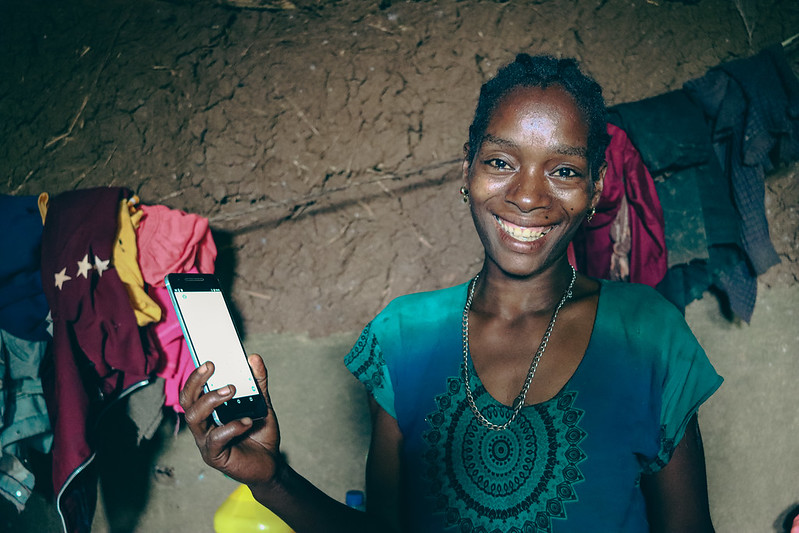
For Moyee, we created a farmer dashboard in order to establish a direct relationship between the farmers that produce the beans and those who drink it. As a ‘live’ dashboard, it offers real-time status of Moyee’s Living Income Roadmap for each individual farmer the brand works with.
We believe that technology is agnostic – neither good nor bad. It’s how we use it that makes a difference. Blockchain is indeed a technology. A technology that is helping us revolutionize the industry by introducing much-needed transparency and organization. In our partnership with Moyee, blockchain is also helping us to get more money into the right hands at the farmers’ level. At the same time, blockchain’s decentralized ledger is slowly replacing baseless marketing claims with clear traceability and quantifiable impact verifiable by everyone.
The FairChain business model is focused on redistributing value more evenly across the entire coffee chain, keeping prices competitive for high-quality coffee and helping achieve living incomes for commodities producers. We don’t believe in profit but in residual value – value that can be shared across the entire impact ecosystem.
TURNING MARKETING INTO IMPACT
Our studies show that quantifiable and verifiable proof of impact – which can be created via blockchain technology – based on a theory of change leads to a brand’s sustainable growth.
Consequently, as consumer loyalty grows through transparency and radical impact engagement, marketing spent becomes more efficient and mindful.
Taking Moyee again as an example, while searching for aways to fund our living income interventions, we looked at the company’s marketing budget and designed a loyalty program in which the brand fans can spend Moyee’s marketing budget on impact programs of choice. We started with planting trees, but also contribute to other programs related to health, clean water and vaccinations.
Through FairChain Tech we offer low-cost, DIY, template-based blockchain technology with the goal to help purpose-driven brands to build value chains that are more inclusive and have a more positive impact in the country of origin. Below you can see our product pillars and tools.
